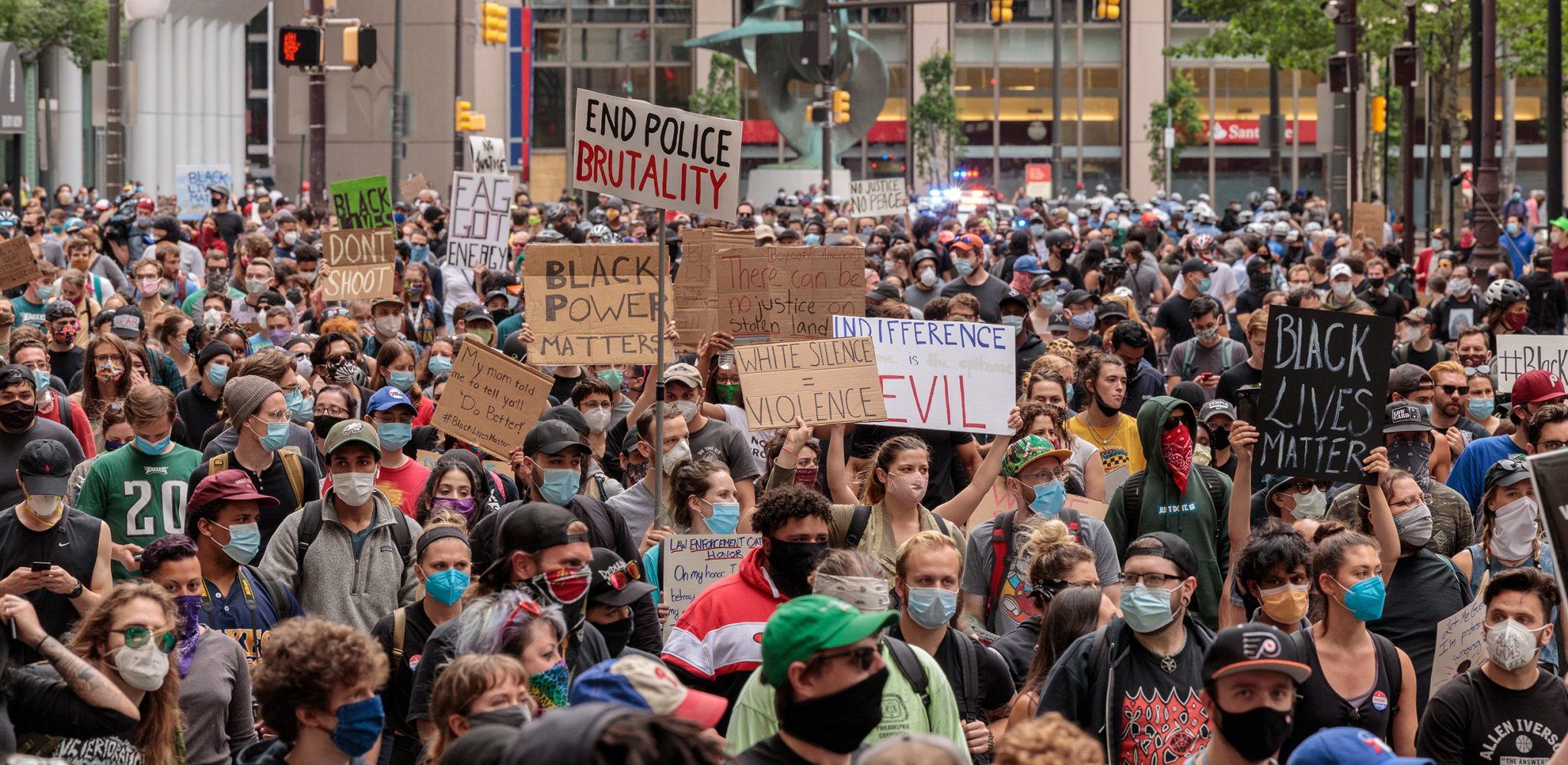Just because you’re being listened to, it doesn’t mean you’re being heard
How does one differentiate between a tool and a weapon? In his recent book Elite Capture: How the Powerful Took Over Identity Politics, Georgetown academic and philosopher Olúfẹ́mi O. Táíwò wrestles with the battering ram of identity politics, from its theoretical origins as defined by the Combahee River Collective to its contemporary bastardisations. Elites are amorphous moving targets for both left-wing and conservative critics who routinely displace much of their own anxieties onto those perched at the top of the economic pile – as well as those languishing at the bottom. Elites become the poster children for unearned status and venal opportunism. Skewered across the wonky political spectrum, they are the cartoon villains of newspaper columns, talk radio and best-selling polemics. In Táíwò’s view, the elites of a society are those who hoard the greatest concentration of its resources, political and discursive power, agency, and epistemic authority.
Fleshing out his theory of elite capture – a concept rooted in development theory – Táíwò prods at the morbid dependencies that arise when elites ‘capture our conversations… for largely the same reasons and in the same ways as they capture everything else’. Reaching into philosophy, game theory, and twentieth-century anti-colonial struggles, the elite capture of mass consciousness described by Táíwò has parallels in Fanon’s withering criticisms of the national bourgeoisie, and in Walter Rodney’s analysis of the ‘shoddy, imitative, lack-lustre’ comprador class of Africa and the Caribbean, who controlled the dissemination of information (and were, at least in Rodney’s eyes, bereft of any basic sense of noblesse oblige). When illustrating elite capture, Táíwò foregrounds the cloistered, increasingly multiracial, managerial classes dominating the self-oiling machines of knowledge and cultural production. ‘When the rest of us make choices about what to watch or read or respond to,’ he explains, ‘we’re mostly making choices in an environment shaped by elites.’

Drawing on the lives and intellectual contributions of Carter G. Woodson, Lilica Boal, Paulo Freire, and Amilcar Cabral, among others, Táíwò presents the struggle against elite capture as one stretching across centuries, from Cape Verde’s militant, anti-imperial underground to the educational battles waged by the Black organic intellectuals of America’s Progressive Era. Táíwò is avowedly internationalist in his analysis. In his introduction, he situates the George Floyd uprisings within a wider matrix of police violence spanning from Brazil – where Black men represent more than three quarters of those killed by Rio law enforcement in the last decade – to the Nigerian government’s brutal crackdown against anti-SARS protestors. But while the cultural logics of Anglosphere elites are disproportionately felt and exported around the world, their uneven spread has its limits. The politics of the Global South, with its animating and immiserating consequences, is not largely concerned with the mediation of language and offence, nor the identarian enshrinement of trauma. In gliding too broadly, Táíwò risks being lost in translation.
‘We are surrounded,’ he writes, ‘by a discourse that locates attentional injustice in the selection of spokespeople and book lists taken to represent the marginalized, rather than focusing on the actions of the corporations and algorithms that much more powerfully distribute attention.’ There are well-meaning motivations which further entrench elite capture, instead of undermining its mechanical reproduction. Chief among them being ‘deference politics’: the moral authority and political astuteness ascribed to marginalised individuals found in rooms where power congregates. In its crudest form, deference politics demands that we solemnly listen to the marginalised and centre their concerns. For Táíwò, this is ‘supercharge[d] moral cowardice’, an ‘abdication of responsibility’ on the part of those too unwilling, too ridden with an almost pyschosexual need for penance, to think and act for themselves. More urgently, deference politics can be cynically instrumentalised by a ruling class who can handpick the marginalised voices who least threaten their interests. Black women in particular occupy a totemic role in the psychic drama of deference politics, one which stifles us within an airless cage of political mammification. But just because you’re being listened to, it doesn’t mean you’re being heard. Or that you’ll still be welcome if you start saying the wrong things. Despite the underlying good intentions behind deference politics, which Táíwò generously acknowledges, such a politic is disciplinary in action, trapping the appointed representatives of the marginalised into a ‘hero class’ in order to assuage the guilt of everyone else. Centring others while libidinally keeping it all about you is a sleight of hand that has disturbingly united the parlance and priorities of activist and corporate cultures. Today, centring looks like the flurry of lucrative jobs in media, the advocacy and non-profit sectors, and the culture industries which open up in the wake of the latest publicised round of state-sanctioned police killings. Some perish, and others publish. The personally advantageous is political. The cottage industry of Black death churns on.

In his 1959 essay ‘Commitment in Politics’, E.P. Thompson defined the history of the English working class as a struggle between competing moralities. The bourgeois fantasy of the working class underestimated the tensions and conflicts of working-class life, emphasising the ‘absolute autonomy of cultural phenomena without reference to the context of class power’. Thompson offers us a snappy way of naming deference politics for what is often is: shame-faced evasion. Where critique is most scathing is often where it’s most needed, where conflict can generate a clarity of vision and organisation. This kind of critical work is heavy with terrible responsibility, as was the case for guerrilla intellectuals like Rodney who, to paraphrase Immanuel Wallerstein’s assessment of the latter’s legacy, lived out these critical implications and was assassinated because of them.
Elite Capture shines best in the chapter ‘Reading the Room’, where Táíwò’s central analogy of the room is stretched from various angles; ‘History has built the rooms around us; we find ourselves in places, and with people, resources, and incentives, that we did not choose.’ White House Situation room. Newsroom. Conference room. Who populates these rooms of authority and outsized influence? Who speaks from within them, even when in protest? Táíwò directs our attention to the absences hidden in plain sight: ‘From a structural perspective’, he writes, ‘the rooms we don’t enter, the experiences we don’t have (and the reasons we are able to avoid them), might have more to teach us about the world and our place in it than anything said inside’.

In mapping out his own intellectual genealogy, Táíwò walks us backwards, beginning with his Nigerian parents’ move to the US – enabled by the Immigration and Nationality Act of 1965’s preference for skilled labour – where they joined an immigrant community that has enjoyed considerable success in their adopted country. Advanced Placement and high school honours classes would follow, as well as the subsequent route to higher education where his initial thoughts on elite capture would first be published as an article in The Philosopher. Far from a stuffy privilege-checking nod, such an accounting has a useful mirroring effect: you begin to interrogate the history of the rooms you have frequented and the ones you remain a stranger to. Like me, you might even ask yourself how you ended up with Táíwò’s book in your hands. Let me retrace my own steps. A bookish childhood spent in terrible schools, and supplemented with the assistance of formerly lower-middle class Somali parents coping with the vertigo of refugeehood-induced downward social mobility while still being cushioned by the education their former class status afforded them. Youth development programmes spearheaded by literary activists; mentors; grad school; social circles which alienated me from my peers in the hood even as they provided me with ample lessons in code-switching and professionalisation. All were crucial steps in the path to becoming the kind of person who writes a book review for an arts publication.
People aren’t stupid. They know when they’re being drafted in as empty abstractions. They know when they’re not really welcome in the room, even when they’re the subjects of its conversations. For readers who have never been ideally positioned to exploit the worst forms of identity politics, who aren’t skilled players in the games of cultural mystification, who can’t smoothly marketise their abjection, for those already outside the room, Elite Capture will confirm more than it challenges. For everyone else, Táíwò’s contribution is an emboldening step towards a ‘constructive politics’ that aims to collectively free us from the violent overdetermination of our lives.
Olúfẹ́mi O. Táíwò, Elite Capture: How the Powerful Took Over Identity Politics is published by Pluto Press
